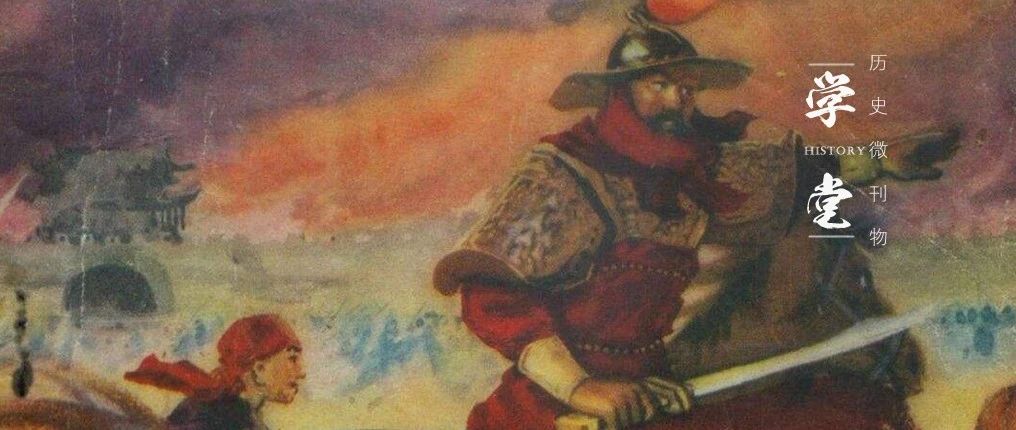Why did the peasant insurgents overthrow the Ming Dynasty at the end of the Ming Dynasty, but finally lost to the Qing army?

A peasant uprising, the largest in Chinese history, broke out at the end of the Ming Dynasty.
at the end of the Ming Dynasty, the largest peasant uprising in China's history broke out. In this uprising war, the leader of the peasant army, Li Zicheng, captured Beijing, causing Emperor Chongzhen to commit suicide and establish the Dashun regime, while another peasant army leader, Zhang Xianzhong, said that the emperor was founded in Sichuan and the country was named Daxi.
in terms of Li Zicheng and Zhang Xianzhong's ability to overthrow the Ming Dynasty, there are two main reasons:
first of all, under political corruption and natural and man-made disasters, there are a large number of poor peasants throughout the country.
second, the Ming Dynasty officials and armies fought on two fronts, which were difficult to balance and exhausted.
Varied with the smallest details,our beige wedding dress are your indispensable items. The easy way with the highest high value.
while the defeat of the peasant army by the Qing army mainly has the following two points:
for example, Wu Sangui stationed in Shanhaiguan wanted to surrender to Li Zicheng, but on the way, he heard that his father was tortured in Beijing for payment, and his family property was confiscated and transferred to the Qing Dynasty and joined forces with the Qing army led by Dourgen to defeat Li Zicheng who came to be requisitioned. In addition, many bureaucrats of the Ming Dynasty who had surrendered to the Dashun regime launched a rebellion after seeing Li Zicheng's defeat in Shanhaiguan. For example, after the surrender of Song Quan, governor of Zunhua of the Ming Dynasty, Li Zicheng was appointed as the envoy of Zunhua. As a result, he launched a mutiny after Li Zicheng withdrew from Beijing, killing all the peasant generals and officials of the original Dashun regime. This kind of bureaucrat of the Ming Dynasty was born out of damage to his interests. There were many rebellions, which caused great damage to Li Zicheng's military deployment.
but after the Qing army entered the customs, to buy the hearts of the people, it issued a big announcement, on the one hand, it announced that it was avenging the monarch and father of the scholar-officials of the Ming Dynasty, on the other hand, it announced that all the officials of the Ming Dynasty who had surrendered not only reinstated their original posts but also promised to increase the meritorious ones, so they won the support of some powerful bureaucrats in the north.
second, Li Zicheng, Zhang Xianzhong, and other peasant army leaders showed incredible belittling of the enemy in the face of the Qing army.
for example, when Li Zicheng led the peasant army from Beijing to conquer Wu Sangui, he did not make a strategic presupposition for Wu Sangui and the Qing army, and although the number of troops he brought with him was more than sufficient to deal with Wu Sangui, he was somewhat weak in dealing with the Qing army, which had been eyeing covetously. Therefore, when the Qing army suddenly came out, Li Zicheng was quickly defeated. According to theory, before the fall of the Ming Dynasty, the Qing army entered the customs many times and looted, causing a great shock. Li Zicheng should be on guard. However, Li Zicheng seemed to think that the Qing Dynasty's entry into the customs and looting was a matter of the Qing Dynasty and the Ming Dynasty and that he and the Qing army did not invade the river, and the other side had no reason to attack him at all. In this case, Shanhaiguan was defeated.
in the third year of Shunzhi, the Qing court ordered Suzu Wang Haoge to lead the army into Sichuan. In November, the Qing army in Sichuan learned from the captives the location of Zhang Xianzhong's battalion was located, and immediately sent troops forward quickly. Shai Haoge's department "carried a malady and traveled three hundred miles in a day and night," while Zhang Xianzhong, who was stationed at the foot of the Phoenix Mountain, did not notice it at all. even when someone came to report before the Qing army came to the camp, Zhang Xianzhong still did not believe it and made no preparations. After the arrival of the Qing army, Zhang Xianzhong led only a small number of people to scout in front of the battle, only to be shot and killed by the Qing army. The Qing army immediately launched a general offensive, the Western army was unprepared for battle, Zhang Xianzhong died, so he was defeated, only some of the rest broke through, and the western regime was destroyed.
therefore, generally speaking, the fact that the peasant armies of Li Zicheng and Zhang Xianzhong were able to overthrow the Ming Dynasty at the end of the Ming Dynasty was successful when they had a broad base of poor peasants and missed many good opportunities to fight on both fronts of the Ming government. After the overthrow of the Ming Dynasty, because they carried out the policy of recovering stolen goods, the scope of the attack was too wide, and they were not supported by the northern bureaucrats and scholars, but when they faced the Qing army, they did not make a correct prediction of the situation, resulting in an incredible belittling of the enemy, resulting in defeat in the future.